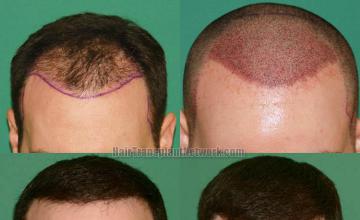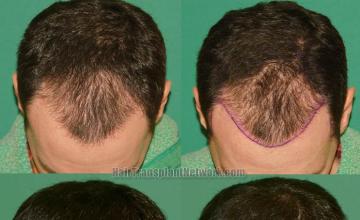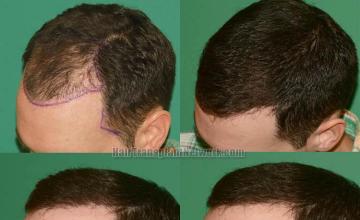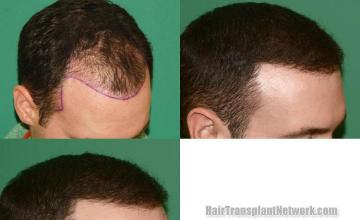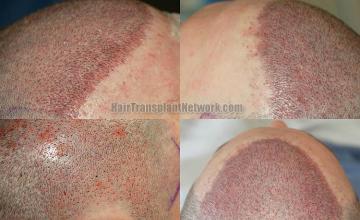Procedure detail
This 30 year old patient presented with a prior history of having undergone what was described as an unsuccessful FUE hair restoration. He was concerned that few grafts grew, leaving him with unacceptably low density in the transplanted frontal area. He was also bothered by unacceptable thinning in the donor harvest area that followed his procedure. His examination revealed miniaturization confined primarily to the frontal half of the male pattern region. This was associated with punctate scarring absent of hair growth that presumably arose following his original procedure. He underwent a secondary procedure in my office at which time 2090 grafts were obtained using FUE harvesting and planted into the outlined frontal recipient area. The graft harvest was strategic in attempting to avoid the previously depleted “sweet spot” of the occipital donor area so as to prevent any additional apparent thinning. The graft harvest focused primarily in the temple and lower occipital regions, which were untouched at the time of his first procedure. Presented are one year postop photos and immediate graft placement photos.Also shown is the depleted occipital donor harvest site with a #2 short-clip and a zero-guard hair length. Finally, an immediate postop photo of the temple donor harvest area contrasts the small punch openings of this session to the large-punch scars that are located toward the back of the current harvest zone.
Hair Restoration Forum
Bald class

Norwood stage 2
There is a slight recession of the hairline around the temples. This is also known as an adult or mature hairline.
